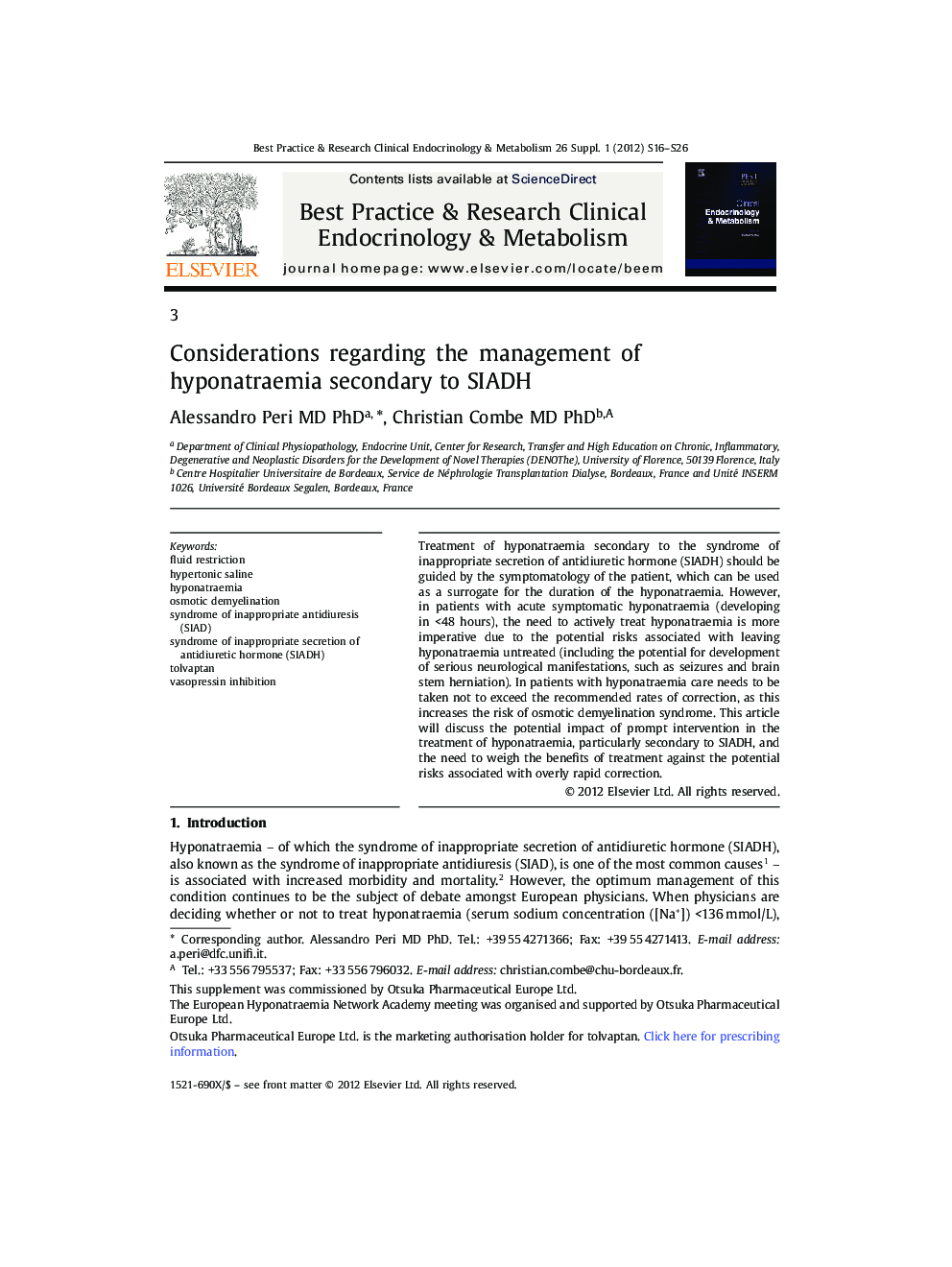| Article ID | Journal | Published Year | Pages | File Type |
|---|---|---|---|---|
| 2791956 | Best Practice & Research Clinical Endocrinology & Metabolism | 2012 | 11 Pages |
Treatment of hyponatraemia secondary to the syndrome of inappropriate secretion of antidiuretic hormone (SIADH) should be guided by the symptomatology of the patient, which can be used as a surrogate for the duration of the hyponatraemia. However, in patients with acute symptomatic hyponatraemia (developing in <48 hours), the need to actively treat hyponatraemia is more imperative due to the potential risks associated with leaving hyponatraemia untreated (including the potential for development of serious neurological manifestations, such as seizures and brain stem herniation). In patients with hyponatraemia care needs to be taken not to exceed the recommended rates of correction, as this increases the risk of osmotic demyelination syndrome. This article will discuss the potential impact of prompt intervention in the treatment of hyponatraemia, particularly secondary to SIADH, and the need to weigh the benefits of treatment against the potential risks associated with overly rapid correction.
